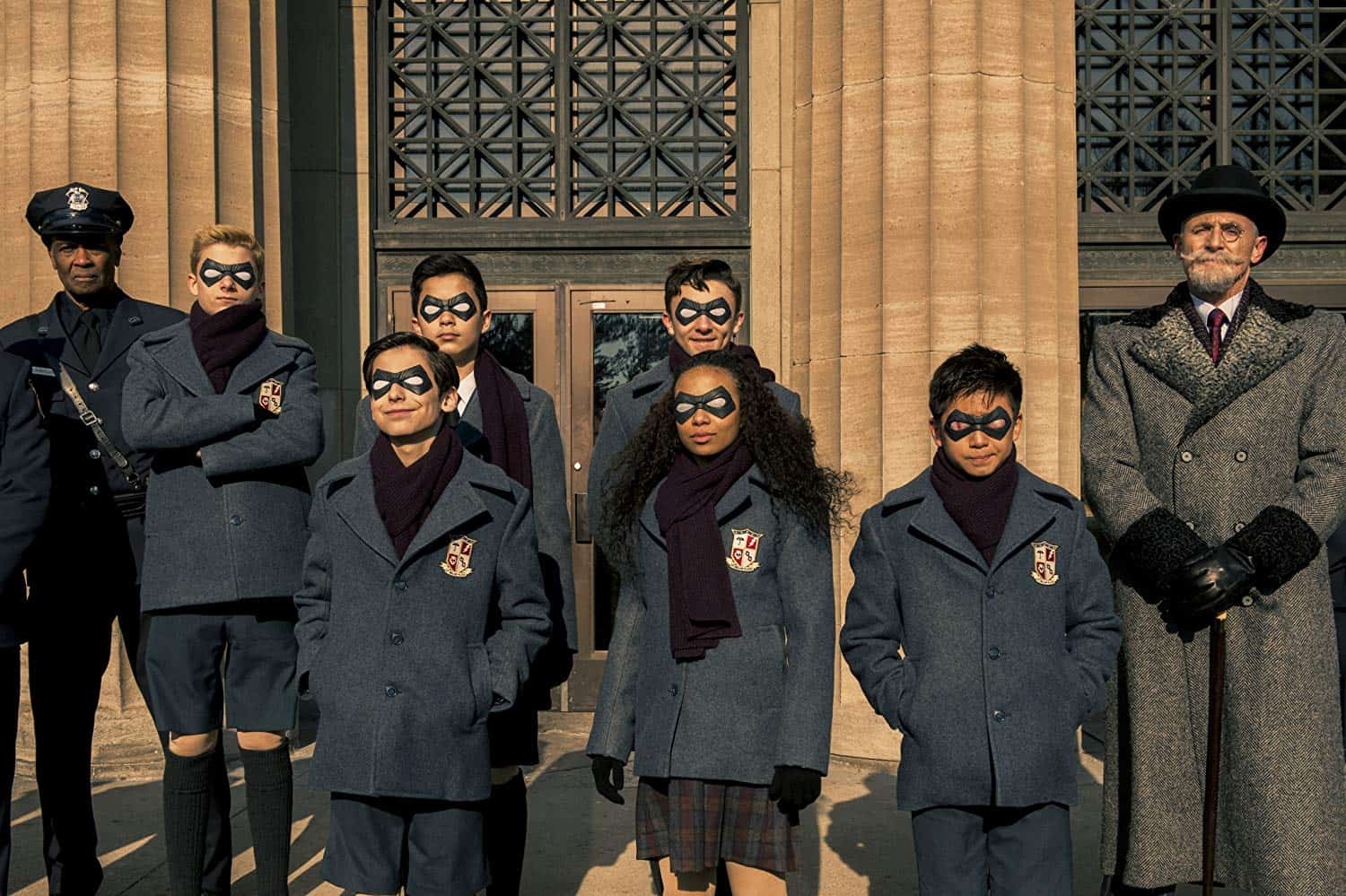In the Beatitudes, Jesus says, “Blessed are the meek, for they shall inherit the earth…” If he had been watching Netflix’s recent release of The Umbrella Academy, he might have said, “Blessed are the beaten, broken, and the blundering… for they shall have to save the world.”
Thematically, the idea of a broken hero is not too far outside of the realm of superhero genre—think of Jessica Jones’s struggle with alcoholism, Tony Stark’s struggle with PTSD, Deadpool’s cynicism which leads to blatant criminal behavior… Yet, from the start of The Umbrella Academy, something else is going on.
The opening premise of the series is that there is some sort of unexplained event in which children are born from women who did not begin the day pregnant. The sudden pregnancies inspire an eccentric billionaire, Sir Reginald Hargreeves, to adopt seven of these children who manifest super-abilities. His adoption though is utilitarian—aimed not at creating a family but at turning the children into superheroes determined to save the world. Cue family drama.
The children refer to the billionaire as “Dad,” but the audience is welcomed into the broken family with the title of the first episode of the series: “We Only See Each Other At Weddings and Funerals.” The gathering of five of the seven now-grown adults gives us some hint to large dramatic events, yet their disdain for their childhood and their father indicates deep wounds—which might be quite familiar to many families.
Hargreeves, the mad-scientist and billionaire philanthropist, fills a sort of “Professor Xavier” role from the X-Men, yet he does so without compassion. He “numbers” the children, simultaneously instituting both a hierarchy of his approval and dehumanizing the children. It reminds us: How often do family pressures create feelings of inadequacy or indifference? Of course, in superhero form, these are typified within flashbacks which reveal the horrors of childhood within the Umbrella Academy.
In one instance, Hargreeves locks a child with the ability to see the dead in a mausoleum—the screams of the thirteen-year-old boy harken to his later descent into the numbness of drugs. A separate instance shows Hargreeves telling little Vanya that she cannot help her siblings stop a bank robbery, because there is nothing special about her. She is even excluded from the official Umbrella Academy photos—which are the equivalent of typical family photos. It is no surprise that as an adult she would be haunted, having felt ostracized, forgotten, and unloved for so much of her life.
Their father pressured them beyond perfection and often treated them as failures for not attaining these impossible, theoretical goals he set for them. And those he didn’t overpressure, he outright neglected. Yet, despite the brokenness that each carry, they are forced back together by the death of their father and the impending apocalypse. As their long-lost brother, Number Five, states:
“So if you don’t get your sideshow acts together, and get over yourselves, we’re screwed. Who cares if Dad messed us up? Are we gonna let that define us?”
His words remind us of a hard pivot point within each of our lives: do we allow our pasts and our past wounds to cripple us? Of course, this is no small question, and it is one of the central themes of the series and of adulthood. How can we continue moving forward with bruises, pain, and regrets?
Perhaps the temptation here is to claim that The Umbrella Academy characters have an unfair advantage, but even their powers do not save them. Rather, as Vanya—the member of the family “who wasn’t special”—asks: “At what cost? I watched everything my brothers and sisters could do ruin their lives.”
If it isn’t superpowers that allow us to overcome our brokenness, what empowers us to fight for our own future? Here the series offers a glimpse beyond the special effects and family drama into a genuine love for one another. Each member of the family may love in imperfect ways—revealing strange foibles and character flaws—but it is clear that they love one another. It is also clear that despite the impossible odds and the feeling of hopelessness, they still hold hope in one another. Ultimately, despite their deficiencies, they come together as a family and accomplish the impossible.
And perhaps here is the beautiful crux of The Umbrella Academy: it isn’t just our powers and abilities that make each of us capable of great things, but it is our failings and brokenness which invite our reliance upon others that allows us to accomplish great acts of love. It’s the strange logic of the Beatitudes: those who are meek, poor, and hungry inherit the Kingdom. Similarly, it is all of us in our imperfections and shortcomings who are tasked with bringing about the Kingdom on earth.
Blessed are the beaten, broken, and the blundering… for we shall have to save the world.


